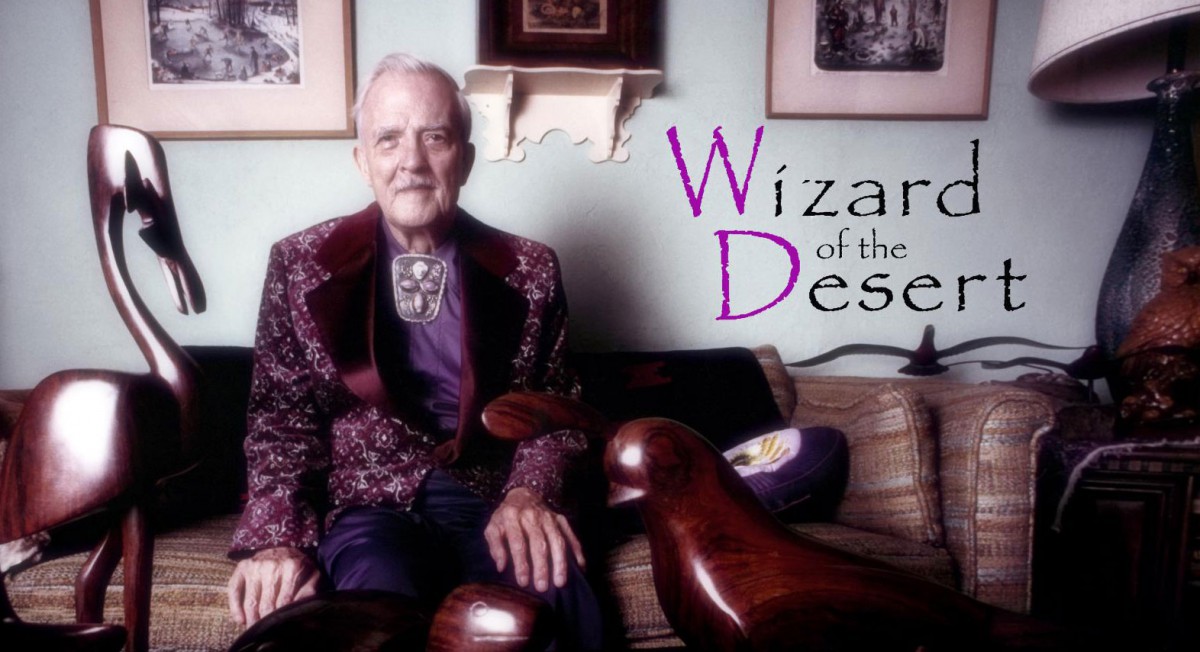Today marks the 35th anniversary of the passing of Dr. Milton H. Erickson, recognized worldwide as the father of clinical hypnosis and much, much more. It’s kind of difficult to prove, but I can confidently say that, regardless what style of therapy you may have been exposed to in your life, it was very (very) likely influenced by Milton in some way, shape or form. Now that’s a HUGE claim to make, but as you will read, Dr. Erickson was an incredible innovator in addition to being a psychiatrist, a medical doctor, and the single greatest communicator that ever lived. He passed away on March 25th 1980 at the age of 78. He loved life (and his large family) right up to the end, regardless of having lived much of it with disability and chronic pain. His wish was to be told jokes on his deathbed.
He was renowned for drifting in and out of a trance state during his therapy sessions with clients and trusted his unconscious mind to understand his patient’s unconscious mind in a way that intellect and logic could only attempt to make sense of afterwards (and fail massively to fully understand). One of his greatest students, Dr Jeffrey Zeig (Psychologist, author, director of the Milton H. Erickson Foundation in Arizona and inheritor of Dr Erickson’s therapy practice) has often stated that even the most perceptive and intelligent person could still only catch onto about 50% of what Milton was doing, and for a disabled man with paralysis of the mouth, tongue, arms and legs, Milton never wasted an ounce of energy doing anything or saying anything that was not entirely purposeful.
Milton had an impressive understanding of the english language having studied the unabridged dictionary in his youth. When he first began this study he was completely unaware that the words in the dictionary were arranged in alphabetical order (he had a learning disorder). It was during this study of words that he experienced an illumination (literally a blinding flash of light) and the dictionary suddenly made sense to him (probably at the same time as much much more of the universe became blindingly clear). Being tone deaf as a child, he hadn’t understood the shared singing practices of his fellow classmates, but had noticed the nuances in their breathing patterns that announced what was about to happen. Humorous anecdotes in some of the many books written about him share how he could influence his classmates and teachers to spread a contagion of yawning around the classroom, just by his altering the way he breathed. No-one figure out how it started, it was such effective covert influence.
His zen-like understanding that everyone’s individual reality is a product of their unique perception, enabled him to provide almost miraculous interventions that baffled academic understanding and earned him the moniker: “Wizard of the Desert”. I saw a great quote on Facebook a few days ago that said “The greatest souls are awakened out of suffering. The most impressive personalities endure many scars.” It is my personal belief that Milton experienced a profound awakening as a result of his many modes of suffering that permitted him a blissful outlook on life and enabled him to see past the illusion of ego in both himself and in others. He saw the true beauty in life that was beyond his mortal body and past his challenges and personal pains. That helped him see the beauty that existed in the lives of his patients and that (along with a mastery of communication) helped him help them see past their challenges and personal pains. He was known for helping those that many others had failed to help with conventional methods.
Adversity is often a great teacher, and Milton had WAY more than anyone’s fair share of adversity. He was deathly allergic (to bees, pollen and dust), paralyzed twice by polio (once at 17 and again much later in life), colour blind, tone deaf, suffered emphysema, dyslexia, endured various other ailments and was born into relative poverty in Nevada 1901 before growing up in a Wisconsin farming community. Having been struck with polio and prescribed a death sentence by his family’s doctor, young Milton not only defied medical expectations by living, he taught his paralyzed body to walk again by observing his baby brothers and sisters learning how to walk and by investing all of his time into the task of never giving up. Through intense observation he gained knowledge of how human beings learn to function as human beings. Through intense observation he also learned to understand subtleties of non-verbal communication (body language, facial expressions, tone of voice etc) and understood better than anyone else (before or after him) the multi-levels of meaning that can exist in even the simplest of sentences.
To illustrate that last point, the sentence: “You don't have to believe me.” implies: you can believe me even though you aren't obliged, others can believe me even if you don’t; I’m telling the truth but I can’t force you to see it; you can believe someone else; there are other options for you to believe; you might seek further evidence; and obviously I might not be telling the truth. Milton understood that problems can be caused by interpreting what someone says to you through your own understanding and not having the flexibility to explore the other possible meanings. Milton was a master at figuring out what people really meant when they communicated, even if they weren’t consciously aware of it themselves.
People cannot NOT communicate. Even silence in response to a question communicates something (unwillingness to respond, unawareness of what to say, inability to talk, lack of awareness of having been asked a question, etc.). Milton was aware that, rather than people being defined by their symptoms, a person’s symptoms communicate valuable information about their unmet needs and/or thwarted state of developmental stage. He provided his patients with experiences and challenges that would help them overcome their challenges rather than prescribing medications that would have merely hidden their symptoms and helped them avoid getting their real needs met. If a depressed patient of his suffered domineering parents, Milton would see to it that they established their independence and freed themselves from tyranny, he didn't drug them into caring less about it just so they could be productive citizens.
Milton was doing family therapy before family therapy existed. He was doing brief, strategic therapy (sometimes as few as one session) at a time in history when long, drawn out (3 times a week for several years) freudian psychoanalysis was far more common than it is today. He mastered and championed the use of hypnosis (currently incredibly popular in England) at a time when the medical community looked down upon hypnotism and trance as mystical nonsense or mere social compliance. He understood quite clearly that human beings can not be categorized by a universal theory that could be applied to everyone. He also understood the many natural trances that humans drift in and out of from moment to moment each day. With his mouth shut and his eyes and ears wide open, he watched and he learned how to use human nature to help human beings.
For those of you that may have heard of NLP (Neuro-Linguistic Programing), the vast majority of it was “discovered” by Richard Bandler and John Grinder during their observations of Milton’s work in the 1970’s. They gleaned from him his understanding of perceptual systems (hearing, seeing, feeling, and smelling/tasting - the 5 senses), the way we express the way we learn by what we say (“I HEAR you clearly”, “I SEE what you mean”; “That’s HARD to understand”; “That’s a BITTER lesson” etc.) and worked to systematize his incredible knowledge of how information was encoded in people’s brains dependant on associational context and only with reference to prior learned knowledge. Between their printed works, Jeff Zeig PhD’s many books and Jay Haley’s “Uncommon Therapy”, Milton Erickson M.D’s pioneering methods of psychotherapy and hypnotherapy have become a foundation of the personal coaching methods of the two biggest names in personal development: Anthony Robbins and Paul McKenna.
Jamie Smart, author of the number one business time management book in England currently “The Little Book of Clarity” is an Ericksonian oriented coach. Bill O’Hanlan: Oprah guest and author of over 35 books was a student of Milton’s. Igor Ledowchowski: Master Ericksonian hypnosis trainer, owner of The Hypnosis Training Academy and author of some of the best hypnotherapy training resources currently available is not shy about Ericskon’s influence in his work. Anthony Jacquin: TV personality, therapist, stage and street hypnotist began his career in hypnosis incredibly influenced by the written work of Erickson. Toronto agent of change and regular on Shirley Maclaine’s radio show, Georgina Cannon teaches Ericksonian concepts in her hypnotherapy certification courses. There are WAY too many people in the forefront of the personal change and executive coaching fields that owe a great debt to this great man to mention. All practitioners of the Human Givens theory of therapy in England are fundamentally Ericksonian therapists, as am I. It just might seem to the general public who probably have never heard of him, that humble Milton was really no-one, when in fact he really was quite someone - just a well kept secret someone.
Good therapy is about getting clients to overcome their learned limitations, not about providing insight. Milton almost never shared his insights with his patients, he did however use his insights to inform him of how best to respond to the problems his patients were communicating. His methods defied conventional psychoanalytic theories and were more informed by philosophy and anthropology than psychology. Our western world seems to prize learned knowledge and often looks down upon insights that go against the grain. Great evidence of this is the war on drugs that was waged by Nixon when those “damn hippies” started loving everyone and asking awkward questions about war and politics. He waged a war on free thinking, not altered states of consciousness. Those who thought freely and were questioning their own culture were seeing their culture for the cult it was. Milton was a freethinker and incredibly aware of the rigid thinking that cults of all kinds cultivated. He wanted no part in an Ericksonian cult and taught his students to think for themselves. That is a risky place to be win this world of people addicted (enslaved) by approval.
I owe a great deal to Milton H. Erickson, everyone at the Milton H. Erickson Foundation, the intensive trainings, master-classes and conferences organized and conducted by the wonderful Jeff Zeig and every other Ericksonian oriented coach, therapist, trainer, teacher and healer that I’ve ever studied under or continue to study with. You are probably unaware of the extent of the influence Milton’s teachings have had and continue to have on the way communication is understood and used in our world. I imagine even the most astute intellect would be aware of no more than about half of it, but that might just be wishful thinking. If you’d like to find out more about Dr. Milton H. Erickson or his therapeutic orientation, there are some wonderful books out there, and thanks to a grant Dr. Jeffrey Zeig was awarded last year, there will one day soon exist Dr. Erickson’s first biography. For now, you may have to make do with viewing the wonderful documentary that was released last year entitled: Wizard of the Desert that can be found by following this link: http://wizardofthedesertfilm.com

 dfdsfs
dfdsfs
.jpg) dfdsfs
dfdsfs
Comments